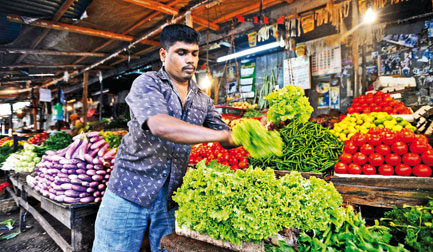Lankan consumer behaviour: post conflict and post crisis
by Prasanna PERERA
Consumers in Sri Lanka as in the case of global consumers, have felt
the impact of the financial crisis.
These impacts are not just financial but deeply psychological and
social. Reports of depression and anxiety based on economic concerns are
common.
 |
|
Consumers’ main focus
is on basic needs |
Against this backdrop this article aims to identify patterns of Sri
Lankan consumer behaviour, which would no doubt be useful for Marketers.
One significant behavioral trend of consumers is the focusing on
'real' needs, not just sheer, indulgent wants. Consumers are focusing on
the basic needs and ignoring other extra wants.
Hence, marketers of essential products and services would have
experienced steady demand, while those of non-essentials would have
experienced declines.
Another trend is the attention given to the needs of children and not
letting them suffer.
Many parents have foregone their interests and given priority to the
children, in terms of education, recreation, clothing and other
requirements.
Hence, demand for children's books, clothes and accessories have
remained steady.
Consumers are also taking great satisfaction in saving and cutting
back and avoiding waste.
The habit of saving for a rainy day is clearly seen as consumers
expect future crisis periods. Avoiding waste also gives consumers
satisfaction that they are acting responsibly to themselves, their
families and to society and environment.
Another important trend is that consumers are questioning old brand
loyalties. Should we remain loyal to the old brands or shift loyalty to
the new? The answer depends on the value offered by the old brands
versus the new brands.
The message to marketers is to keep adding value to their brands and
maintain their relevance to consumers at all times.
Another related development is the growing demand for private labels
(retailer brands).
These retailer brands are priced lower than manufacturer brands and
offer great value to customers.
A 'back-to-basics' mentality is observed, virtually in everything. No
frills but sticking to the basics in household, personal and family
care.
This mentality is reflected in the purchase behaviour of different
product categories.
A trend towards home grown products and brands is also observed due
to lower prices and also a feeling of patriotism.
"Be Sri Lankan, Buy Sri Lankan" is the motto that is gaining
ascendancy across different product and service categories.
Further, preference for natural and herbal products is also observed.
For example products such as Kola Kenda , Cunjee, traditional sweetmeats
and natural cosmetics/personal care products.
Sri Lankan marketers need to understand these modern consumer buying
trends and adapt their marketing strategies accordingly. In Product
Development, the need of the hour is to offer good quality, value added
products, that meets customer requirements precisely. Cut the frills and
expensive additions, that simply add to costs.
In the case of service businesses, the key word is 'simplicity.'
Simple and cost effective restaurants, hotels, holiday resorts and
hair dressing salons.
Good distribution and product/service availability is key. In an
overcrowded marketplace, non-availability will lead to loss in revenue,
profits and customers.
In marketing communications, keep messages simple and relevant and
avoid jargon and exaggerations. Above all, be truthful, honest and
credible. Use below-the-line communication methods that can reach
customers directly and afford opportunities for interaction.
There are many cost effective methods of marketing communications in
Sri Lanka. Marketers would do well to explore these opportunities, to
stretch their limited budgets.
Sri Lankan consumers can be expected to be more savvy and will
explore marketing offers carefully before making commitments.
Further, greater consciousness about environmental issues can be
predicted.
To what extent this would alter buying behaviour is left to be seen.
Even the affluent minority will not want to show-off, although they
would continue to silently indulge in their extravagances.
A greater health consciousness will be manifested in the growing
trend for natural, traditional and herbal foods and beverages.
Health and fitness service businesses can also expect a boom. Small
extra's will be enjoyed by the majority but less frequently, due to the
savings mentality.
In this brief article, I have endeavoured to share my thoughts
relating to consumer buying behaviour and habits in the year 2010 and
beyond.
|

